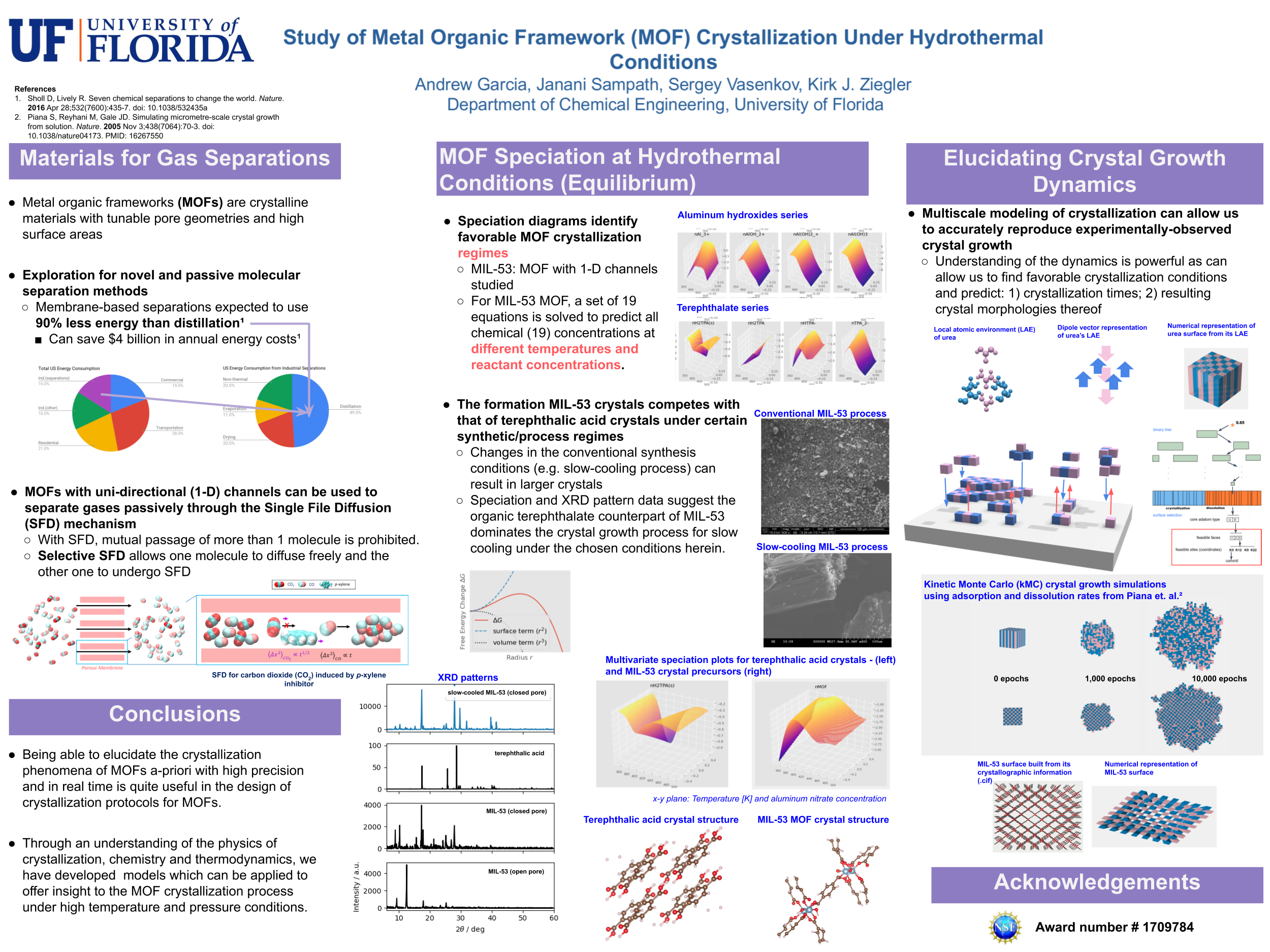Click to Enter the Poster Zoom Room: Poster 13 Zoom Link or Return to Poster Session 2 List

Study of Metal Organic Framework (MOF) Crystallization Under Hydrothermal Conditions Andrew Garcia (LinkedIn) Authors: Andrew Garcia, Janani Sampath, Sergey Vasenkov, and Kirk Ziegler Faculty Mentor: Kirk Ziegler, PhD College: Engineering Department: Chemical Engineering |
|
AbstractMetal organic frameworks (MOFs) are crystalline materials known for their tunable pore geometries and high surface areas, making them promising materials for a wide range of adsorption and separation applications. A subset classification of MOFs with 1-D pore channels (“rod-MOFs”) and diameters on the molecular scale is of relevance to passive gas separation processes, while their application to such technologies remains novel concept. To materialize this concept, it is necessary to make rod-MOFs larger than the conventional micron scales and with the least amount of intergrowths so that chemicals may flow freely through the channels without physical interruptions. Even though the processes to make MOFs are ubiquitous in the literture, the optimization and understanding of their crystallization phenomena remains a challenge. These materials are typically synthesized under hydrothermal conditions in a closed system. Due to the hermetic nature of such system, an empirical, real-time kinetic control as well as the elucidation of specific process conditions for optimized crystallization can be a complex task. Being able to elucidate the crystallization phenomena of MOFs a-priori with high precision and in real time can thus be quite useful in the design of crystallization protocols for MOFs. Through an understanding of the physics of crystallization, chemistry and thermodynamics, we have developed models which can be applied to offer insight to the MOF crystallization process under such high temperature and high pressure conditions.
|
|
|
|
|
Poster Pitch |

